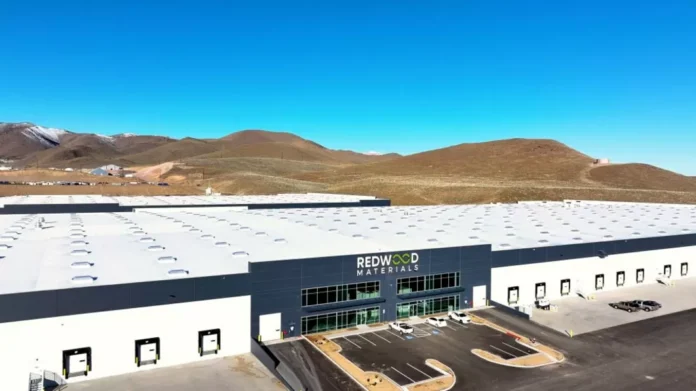The automotive industry is constantly evolving, with new technologies and innovations being introduced every day. One of the most exciting developments in recent years is the rise of electric vehicles (EVs). As more and more car manufacturers are shifting towards producing electric vehicles, the question of what happens to the batteries once they reach the end of their lifespan has become a pressing issue. In order to address this concern, Redwood Materials, a company specializing in sustainable materials management, has announced a partnership with Ultium Cells to recycle GM’s EV battery scrap.
This collaboration is a significant step towards creating a circular economy for EV batteries, where materials are reused and recycled instead of being disposed of in landfills. Redwood Materials, founded by Tesla’s former Chief Technology Officer JB Straubel, has a proven track record in sustainable materials management. With their expertise and innovative technologies, they are well-equipped to handle the recycling of GM’s EV battery scrap.
Ultium Cells, a joint venture between General Motors and LG Chem, is responsible for producing batteries for GM’s upcoming line of electric vehicles. With this partnership, Redwood Materials will be the sole recycling provider for Ultium Cells, ensuring that all battery scrap from GM’s EV production is properly managed and reused. This is a major step towards GM’s commitment to becoming a zero-waste company.
The process of recycling EV batteries is complex and requires specialized knowledge and equipment. Redwood Materials has developed cutting-edge technologies to efficiently and effectively extract valuable materials from these batteries. These materials, such as nickel, cobalt, and lithium, can then be repurposed for use in new batteries, reducing the need for mining and minimizing the environmental impact.
This partnership between Redwood Materials and Ultium Cells is not only beneficial for the environment but also for the economy. With the growing demand for electric vehicles, there is a significant opportunity for job creation in the recycling industry. This collaboration will not only create new jobs but also contribute to the growth of the green economy.
The announcement of this partnership comes at a crucial time, as the world is facing the challenges of climate change and the need for sustainable solutions. With the transportation sector being one of the biggest contributors to greenhouse gas emissions, the shift towards electric vehicles is a crucial step in reducing our carbon footprint. However, it is not enough to simply switch to electric vehicles; we must also ensure that the entire lifecycle of these vehicles is sustainable. This partnership between Redwood Materials and Ultium Cells is a significant step in that direction.
In addition to the environmental and economic benefits, this collaboration also highlights the importance of a circular economy. By repurposing materials from old batteries, we are reducing our reliance on finite resources and creating a more sustainable future. This is a win-win situation for both the industry and the environment.
The partnership between Redwood Materials and Ultium Cells is just the beginning. As more and more car manufacturers shift towards producing electric vehicles, the demand for sustainable battery recycling will only continue to grow. Redwood Materials is well-positioned to meet this demand, and their partnership with Ultium Cells sets a positive example for other companies to follow.
In conclusion, the announcement of Redwood Materials’ partnership with Ultium Cells to recycle GM’s EV battery scrap is a significant development in the automotive industry. It not only addresses the issue of battery waste but also promotes a circular economy and contributes to the growth of the green economy. With this partnership, GM is not only showing its commitment to sustainability but also setting an example for other companies to follow. We can only hope that this collaboration will inspire others to take similar steps towards a more sustainable future.

